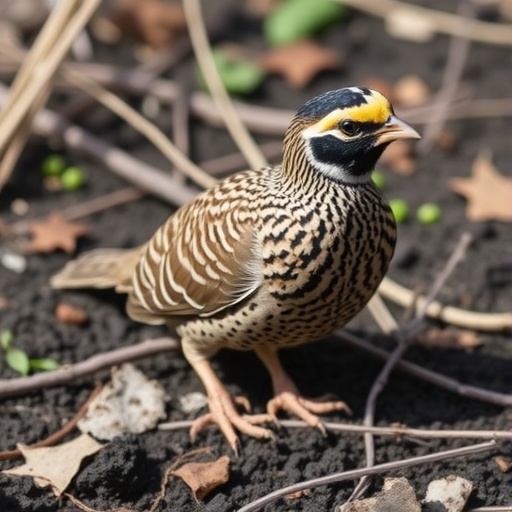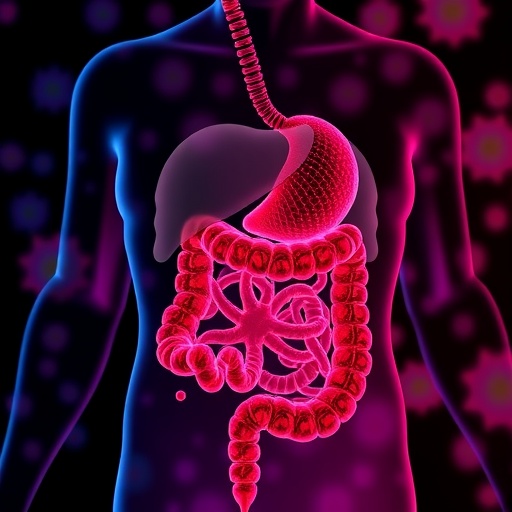
In a groundbreaking study, researchers have unveiled the remarkable potential of biochar derived from the Prosopis farcta plant in combating aflatoxin B1, a potent mycotoxin known for its carcinogenic effects on both humans and animals. This innovative approach not only highlights the efficacy of biochar as a detoxification agent but also presents a novel solution to enhancing health and productivity in quails, a significant species in aviculture and research. The implications of this research extend beyond aviculture, resonating with broader agricultural practices and food safety considerations.
Aflatoxin B1, produced by fungi such as Aspergillus flavus, poses a severe threat to livestock health and, consequently, to human consumers of animal products. The toxin’s presence in animal feed can lead to reduced productivity, increased susceptibility to diseases, and even fatalities in poultry. Recognizing the urgent need to address this issue, Raz and colleagues have focused their efforts on exploring the use of biochar as an intervention. This research represents a significant step forward in mitigating the impact of aflatoxin contamination in food production systems.
Biochar, a carbon-rich product derived from the pyrolysis of organic materials, has gained attention for its potential applications in agriculture. Its unique properties, including high surface area and porous structure, allow it to interact with a range of pollutants, thereby enhancing soil health and crop productivity. In the context of this study, biochar has been shown to effectively adsorb aflatoxin B1, thereby neutralizing its harmful effects. The underlying mechanisms of this adsorption process involve various physicochemical interactions between the toxin molecules and the biochar surface, which warrants further exploration.
The researchers conducted a series of controlled experiments using quails to assess the effects of Prosopis farcta biochar on aflatoxin exposure. They found that quails fed a diet supplemented with biochar exhibited significantly improved health markers compared to those exposed to aflatoxin without biochar. Key parameters assessed included growth rates, feed efficiency, and overall survival, all of which underscored the protective role of biochar against aflatoxin-induced toxicity. This compelling evidence paves the way for considering biochar as a viable additive in feed formulations, particularly in regions where aflatoxin contamination is prevalent.
In addition to its detoxifying properties, the study highlights the positive impact of biochar on quail health and productivity. Enhanced weight gain and improved feed conversion ratios were notable findings that resonate with poultry farmers and stakeholders in the aviculture industry. The results suggest that the incorporation of biochar in feed not only mitigates toxin-related health risks but also contributes to the economic viability of poultry farming by improving growth performance.
The implications of this research extend to environmental sustainability and agricultural resilience. By utilizing waste biomass to produce biochar, farmers can engage in a circular economy that not only addresses toxin concerns but also enhances soil fertility and carbon sequestration. This eco-friendly approach aligns with global efforts to promote sustainable agricultural practices and reduce the environmental footprint of livestock production.
Moreover, the potential applications of biochar are not limited to quails alone. The findings of this research may have broader implications for other livestock species, including chickens, pigs, and ruminants. As aflatoxin contamination continues to pose serious challenges in animal husbandry, the adoption of biochar-based solutions can establish a healthier and more sustainable foundation for livestock management.
In light of these promising results, further studies are warranted to elucidate the optimal conditions for biochar production and its application across various livestock systems. Understanding the specific factors that influence the effectiveness of biochar in absorbing aflatoxin and enhancing animal health will be critical for scaling up this intervention in diverse agricultural contexts.
The interdisciplinary nature of this research underscores the collaboration between environmental science, toxicology, and agriculture. By bridging these fields, scientists are better equipped to develop innovative solutions to complex challenges such as food safety and animal welfare. This collaborative spirit reflects the growing recognition that sustainable agriculture must be approached holistically, considering not only productivity but also ecological health.
In conclusion, the work of Raz, Bagherzadeh-Kasmani, and Karimi-Torshizi presents a compelling case for the integration of Prosopis farcta biochar into poultry diets as a means of combating aflatoxin B1 toxicity while promoting better health and productivity outcomes. This pioneering research not only offers a practical solution for quail farmers but also sets the stage for future investigations into biochar’s role in enhancing food safety and agricultural sustainability on a larger scale.
As the dialogue around food safety continues to evolve, studies like this serve as a reminder of the innovative solutions that can arise when we embrace nature-based approaches to agricultural challenges. The journey towards safer and more resilient food systems requires continued research, collaboration, and a commitment to integrating sustainable practices across the board.
By harnessing the power of Prosopis farcta biochar, we take a significant step forward in addressing one of the pressing issues in livestock production and food safety. The future appears promising, as researchers and farmers alike explore the potential of biochar in fostering healthier animals, safer food, and a more sustainable agricultural landscape.
Subject of Research: Biochar from Prosopis farcta for aflatoxin B1 neutralization in quails
Article Title: Prosopis farcta biochar neutralizes aflatoxin B1 and enhances health and productivity in quails
Article References:
Raz, M., Bagherzadeh-Kasmani, F., Karimi-Torshizi, M.A. et al. Prosopis farcta biochar neutralizes aflatoxin B1 and enhances health and productivity in quails.
Discov Anim 2, 12 (2025). https://doi.org/10.1007/s44338-025-00054-1
Image Credits: AI Generated
DOI: 10.1007/s44338-025-00054-1
Keywords: Biochar, Prosopis farcta, aflatoxin B1, quails, animal health, food safety, sustainable agriculture.
Tags: aflatoxin B1 detoxification strategiesaviculture health solutionsbiochar applications in agriculturebiochar as a feed additivecarbon-rich products in farmingenhancing quail health with biocharenvironmental impact of biocharfood safety and mycotoxinsmycotoxin reduction in livestockProsopis farcta biochar benefitspyrolysis-derived biochar usessustainable agriculture practices




